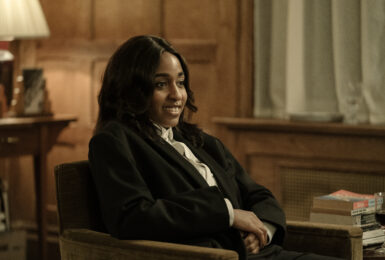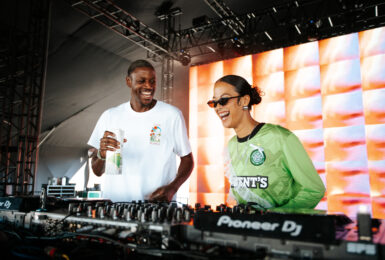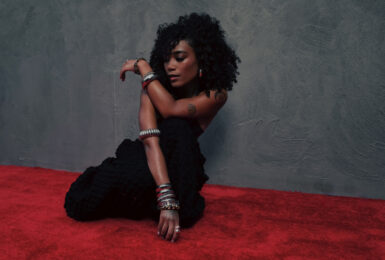
MusicVideos
interview: tobi talks poetry, hypocrisy & self-reflection
If you don’t know Nigerian-Canadian rapper/singer TOBi by now, you better get familiar as this up-and-comer carves out a name for himself in hip hop. Bar by bar, TOBi presents unrelenting lyrical consistency making for something more like rhythmic slam poetry than straight hip hop. Drenched in soul and thoughtfulness, TOBi’s music poses questions about contemporary wokeness, intersectional issues and operating through white society as a part of the diaspora. Weaving in and out of complementary productions with grace and ease, TOBi’s music is no doubt very listenable, but it’s his lyrical content that compels a double-take. And, now, fresh on the release of his latest (maybe best) single so far, “City Blues” and some studio time with L.A. rapper The Game, the rising star took some time to sit down with us at AFROPUNK to talk about his Shakespearean inspiration, wearing many hats, and his love of poetry.
Your new single was inspired in part by Shakespeare quote: “All the world’s a stage, and all the men and women merely players” and the many roles we play in life. What are some of the roles you find yourself playing from day to day?
Most definitely. I play the role of a family member. Of a son. A brother. I also play the role of a friend. A friend to the close people in my circle. I play the role of a musician. I play the role of a contributing member of society. I play the role of an entertainer, as well.
What are some of the conflicts you experience in your life when you’re acting in these roles?
As an artist, I recognize my role in society but I also don’t want to fit into a stereotype or a box. Like, “oh, you’re an artist, you must do ‘this.” ‘You must stay in this lane. And, no. I understand this role has been set before me, but I’m not gonna be complacent and just do what’s expected of my society.

Photo by Anthony Gebrehiwot of Xvxy Photo (@xvxyphoto)
Your flow and lyricism has a slam poetry inspiration to it. Who are some of the artists that have inspired you?
Oh my goodness, I love that. I love poetry so much. I love Gil Scott-Heron. Frank Ocean, you know his kind of stream-of-consciousness flow is very poetic. It’s beautiful. Marvin Gaye. Eartha Kitt. Florence and the Machine. Very poetic. Those are my favorite kinds of artists because you can read their lyrics out loud — even without the accompanying music — and be moved. And that’s what I aspire to do. Even, like, Nas, Jay-Z. It’s storytelling… that’s my favorite part of music. Lyrics are definitely my favorite part of music. And I can’t forget my favorite of all time: Andre 3000.
Is there an overall message or theme to your music?
Yeah! Unapologetical soul music. That’s what I call it. Like, what are you feeling in this moment. Have you heard of Nayyirah Waheed? She’s a poet; she’s phenomenal. And for me, my biggest takeaway is “what are you feeling in the moment?” Address it and talk about it. Write it down. Examine it. Self-examination, that’s a very important theme to me.
When you talk about self-examination and reflecting inward, what are some of the identity struggles or perspective-shifts as part of the African diaspora that inform the way you make your music?
Absolutely, the balance between assimilation and embracing your cultural identity. So, for me, one of them is language. English is my first language. But cultural language is Yoruba, from the Yoruba tribe in Africa. But also the Yoruba tribe is in Cuba and in Latin America. [There are people like me] spread out through immigration and of course the slave trade. And I would love for us to be able to embrace each other’s culture and be accepting. To connect through the our shared diaspora.
Get The Latest
Signup for the AFROPUNK newsletter





